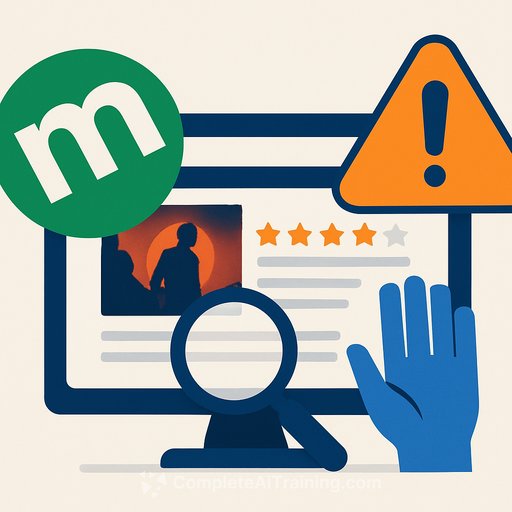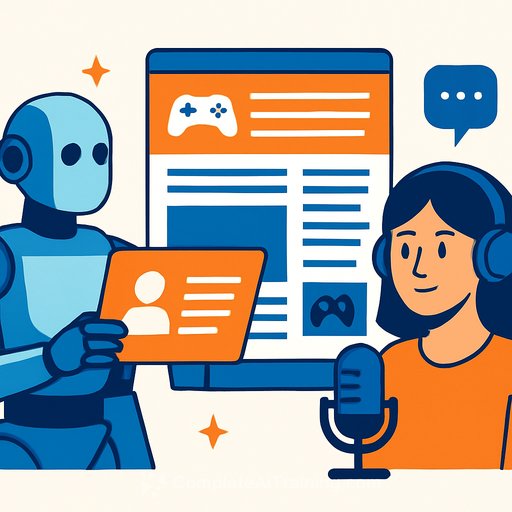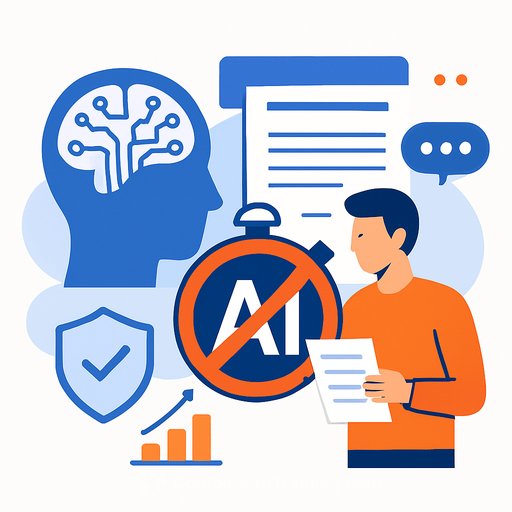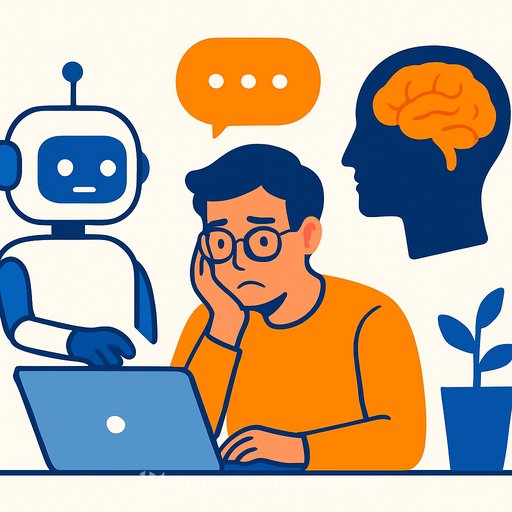AI in Action: Stolen Words, Fake Books, and the Case for Human Memoirs
Secrets and Styes by Gerard Smyth is a genuine memoir - the kind you feel on the page. That matters now more than ever as AI-generated books flood storefronts without clear disclosure.
Writers are asking a basic question: how do you know if the book in your hands came from a person or a machine?
What's happening
Publishers should disclose if AI contributed to a book. That disclosure is inconsistently enforced, and synthetic books slip through. Meanwhile, large models are trained on scraped text - including books - often without permission.
The result: a growing supply of fake or derivative books built from "borrowed" prose, undercutting the years of work real authors invest in their craft.
Why it matters to writers
AI can spin out a manuscript in under an hour. A serious book can take a decade. That asymmetry pressures advances, squeezes midlist careers, and makes publishers more risk-averse.
Small presses and local bookshops - especially in Ireland - are cultural infrastructure. They're the filter for authentic voices, and they keep real writers in business.
Memoir stands apart
Great memoirs carry human memory, contradictions, and place-based detail. Readers feel the difference. They know the voice. They've walked the streets named in the chapters.
That's why a memoir like Secrets and Styes lands with weight. It's lived experience, not stitched patterns from a dataset.
How to protect your work and your readers
- State authorship clearly. Add a front-matter note and product-page line: "This work was written by the author without AI text generation." If you use AI for light edits or indexing, disclose that specifically.
- Use contracts that forbid training use. Require publishers and platforms not to use your manuscripts or metadata to train AI systems.
- Keep provenance. Save dated drafts, notes, and research trails. Register ISBNs. Deposit legal copies. This helps if you need to dispute a fake or prove authorship.
- Prefer trusted channels. Work with local publishers and bookshops. Vet aggregators and print-on-demand services. If a platform can't explain its anti-spam and disclosure policies, think twice.
- Guard your digital files. Share review copies via watermarked PDFs or secure links. Limit public previews. Remove exposed sample chapters that aren't necessary.
- Build direct reader ties. Newsletters, events, and signed editions make it harder for impersonators to compete - and easier for readers to spot fakes.
- Report counterfeits. Watch for lookalike titles under your name, low-quality clones, or suspicious uploads. Flag them to retailers and your publisher quickly.
Spotting fake or synthetic books (for you and your readers)
- Style tells: repetitive phrasing, generic metaphors, uneven tone, and sudden shifts in voice.
- Shallow specifics: fuzzy locations, off-key timeline details, or people described without texture.
- Metadata oddities: vague author bios, no acknowledgements, no author presence online, and implausibly fast publication schedules.
- References that don't resolve: citations that aren't real, quotes without sources, or "facts" no one can verify.
What retailers and publishers should do
- Enforce clear labeling for AI-assisted content on product pages.
- Verify author identity before listing and require proof of rights for uploads.
- Throttle spam by limiting daily submissions and auditing suspicious catalogs.
- Support small presses and local authors with curated placement and events.
The legal picture (and where it's going)
Disclosure and content-origin rules are emerging and will keep shifting by country. The EU has introduced transparency obligations for AI-generated content, and enforcement will shape how books are labeled across platforms.
EU Artificial Intelligence Act overview | Authors Guild open letter on AI and scraping
The simple filter
Support local bookshops and presses that champion real authors. If you write, publish through partners who care about provenance. If you read, choose books with a clear human behind the words.
The signal is human. Keep it that way.
Your membership also unlocks:





